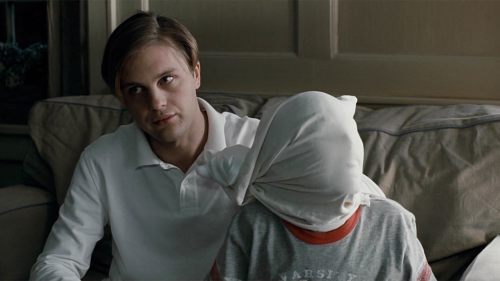Cannes 2017 Review: Haneke’s HAPPY END Both Flounders And Fascinates
In some ways Happy End sees Michael Haneke at his most Scandinavian, producing a film that aspires more to the darkly comic and acerbic, rather than the more sobering early works by the German himself. This isn’t to say that Haneke is a stranger to a smile – even Funny Games has some humour buried in the bleakness, its title not completely ironic – but with Happy End Haneke has come probably as close as he will to a screwball comedy. This isn’t to say, of course, that it’s very close at all. Happy End is still a meditation on misery, as we’ve come to expect, a rumination on class and privilege set in Northern France.
Some context, as for some international audiences the locale won’t be quite the red flag it’s meant to be. Over the last half-decade this northern area of France has been the locus of the migrant crisis, with massive tent cities the final refuge before crossing the channel leaving mainland Europe for opportunities in the UK. The clearing of this so-called Calais Jungle last October caused massive displacement and contributed to the results of the Brexit vote and the recent French presidential elections.
It’s against this backdrop that we meet the family Laurent. There’s Anne (Isabelle Huppert), as formidable as one could expect from this fine actor, responsible for a construction company formerly run by her now ailing father George (Jean-Louis Trintgnant). She has an idiot son Pierre (Franz Rogowski) who seems as stoned as his name implies in French, and a brother Thomas (Matheiu Kassovitz) who must care for a daughter from a previous marriage, Eve (Fantine Harduin).
The film begins with Eve spying on her mother and experimenting with tormenting animals, yet quickly we surmise that the child’s sociopathy is only a juvenile facet of the rest of the family's dysfunction. There’s a dynamic with the Morrocan servants who are discussed as “slaves”, or the migrants trotted in at a family event in order to embarrass all. The film throughout has characters forcing each other to confront the very things they wish to avoid, as if training a dog not to soil by rubbing its face in its own shit. Haneke often does this kind of grabbing-of-the-head cinema, but for some reason his lighter, broader touch makes the stakes feel even more disjointed.
In the end the back-and-forth family drama results in a number of disparate scenes that never cohere, feeling more like episodic television than some grand Shakespearian delve into familial angst and retribution.
Still, the performances, particularly by Harduin and Huppert, are often a treat, while Christian Berger’s lensing makes the environs both inviting and chilly. It’s not a total disaster, nor is it one of Haneke’s great works, and maybe that’s enough for the story that’s being told. Happy End may be happy enough, but with such rich ingredients, it’s hard not to feel disappointed in the concluding result.

_500_281_81_s_c1.jpg)

